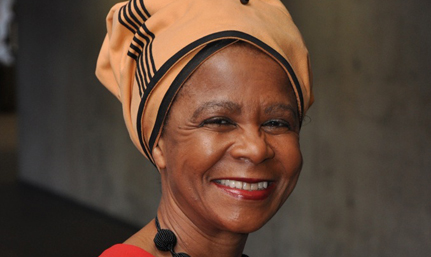Latest News Archive
Please select Category, Year, and then Month to display items
12 October 2020
|
Story Arina Engelbrecht
|
Photo Supplied
 Arina Engelbrecht from Organisational Development and Employee Well-being believes physical activity has a number of benefits for one’s health, including stress relief.
Arina Engelbrecht from Organisational Development and Employee Well-being believes physical activity has a number of benefits for one’s health, including stress relief.
Being physically active plays a big role in preventing the development of mental-health problems and in improving the quality of life of people experiencing mental-health problems.
Treatment for depression
Physical activity can be an alternative treatment for depression. It can be used as a stand-alone treatment or in combination with medication and/or psychological therapy. It promotes all kinds of changes in the brain, including neural growth, reduced inflammation, and new activity patterns are formed that promote feelings of calm and well-being. It releases endorphins – powerful chemicals in the brain that energise your spirit and make you feel good.
Physical activity can be very effective in relieving stress. Research in adults has found that physically active individuals tend to have lower stress levels compared to individuals who are less active. It also leads to improved sleep. When a person sleeps better and feels more rested, overall quality of life improves. They cope better with daily life stressors.
Reduce Alzheimer's risk
Regular physical activity can reduce your risk of developing Alzheimer's disease by up to 50%. It can also slow down further deterioration in those who have already started to develop cognitive problems. It stimulates the brain’s ability to maintain old connections as well as to make new ones.
A study asked people to rate their mood immediately after periods of physical activity (e.g. going for a walk/run, cycling, doing housework) and periods of inactivity (e.g. reading a book or watching television). Researchers found that participants felt more content, more awake, and calmer after being physically active compared to after periods of inactivity.
In conclusion, people who are physically active feel a sense of well-being, feel more energetic throughout the day, sleep better at night, have sharper memories, and feel more relaxed and positive about themselves and their lives.
“Being physically active not only changes your body, it changes your mind,
attitude, and your mood.” – Arina Engelbrecht
Inaugural lecture challenges leaders in higher education
2012-10-30
|

|
Dr Mamphela Ramphele
Photo: Stephen Collett
29 October 2012 |
Lecture (Pdf format)
According to international statistics, South Africa’s school performance is rated 140th out of 144 countries. South Africa is also ranked 143rd out of 144 countries when it comes to the quality of mathematics and science. About 600 000 South African graduates are unemployed and about 500 000 learners are failed by our current education system.
Dr Mamphela Ramphele brought these shocking statistics to the light at the inaugural lecture of the Annual Prestige Lecture at the Faculty of Education on Thursday 25 October 2012 at the University of the Free State (UFS).
This lecture will henceforth be known as the Mamphela Ramphele Prestige Lecture.
Dr Ramphelefocused her lecture on ‘Educating the 21st century citizen’.
“One of the defining characteristics of the 21st century is the vast number of choices that confront us every day at a personal, professional and political level.”
She asked if 21st century South Africans are equipped with the skills to make the choices that confront them daily.
“The failure to transform our apartheid education into one characterized by equity and excellence, is producing graduates who lack self-confidence.”
Dr Ramphele said that in South Africa about 1/6th of government expenditure goes to education, but the outcomes remain shocking.
For Dr Ramphele the answer lies in creating platforms for open conversation about South Africa’s painful past and the agenda for radical socio-economic restructuring should include the fundamental transformation of education.
She praised the UFS, under its current inspirational leadership, for its role as change agents through the education.
Prof. Rita Niemann, senior professor at the Faculty said the Annual Mamphela Ramphele lecture is to further expand and celebrate education in South Africa.
“Dr Ramphela has given us so much food for thought by challenging leaders in higher education to speak out about the questionable state of education in South Africa and to become engaged in the ‘revolution of the spirit’ in order to deliver citizens who own and shape the country.”